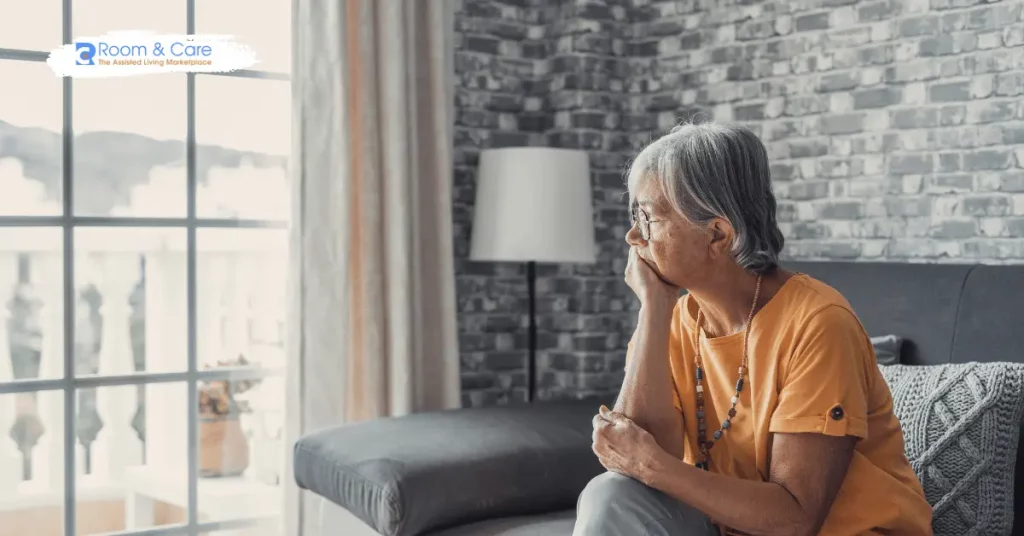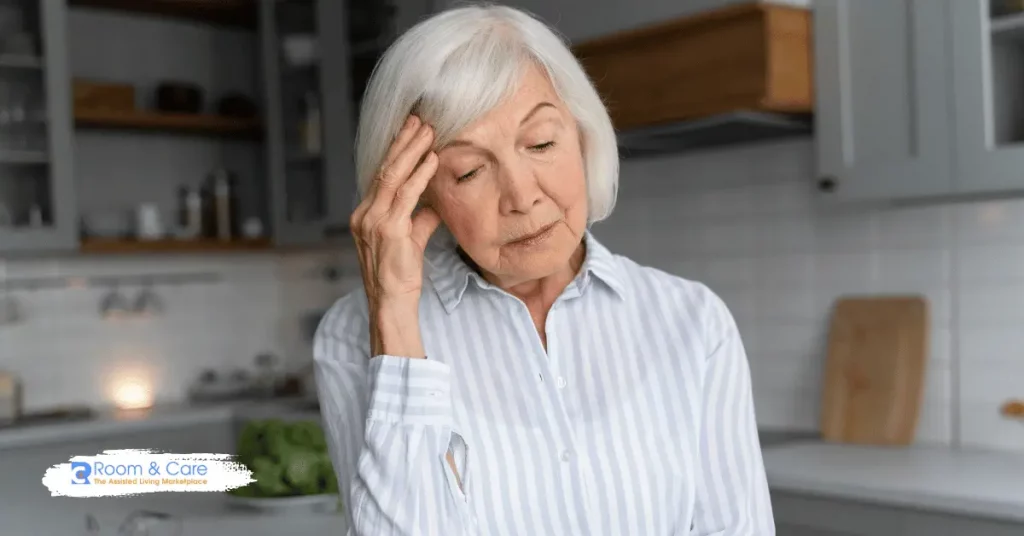

Mental health challenges, such as depression and anxiety in the elderly, are often misunderstood or overlooked, yet they are incredibly common and can significantly impact the quality of life for seniors. Whether an older adult is living independently, in a senior living community, an assisted living facility, or a nursing home, recognizing and addressing these mental health issues is essential for maintaining well-being. In this comprehensive guide, we will explore the causes, symptoms, and solutions related to depression and anxiety in the elderly, providing practical insights for families, caregivers, and those in senior living communities.
Depression and anxiety are not a normal part of aging. Yet, studies show that a significant number of older adults experience one or both of these mental health conditions. According to the CDC, nearly 7 million people over the age of 65 suffer from depression, while the prevalence of anxiety disorders in seniors is approximately 10%. These statistics are alarming, as untreated mental health conditions in older adults can lead to severe consequences, including a decline in physical health, increased isolation, and a higher risk of mortality.
As we age, it’s natural to face emotional challenges such as grief, loss of independence, and adapting to new physical limitations. However, there is a stark difference between normal emotional reactions and clinically significant mental health conditions like depression and anxiety.
While it’s common for seniors to experience short periods of sadness or worry, these feelings become a concern when they are persistent and begin to interfere with daily life. Recognizing the distinction is key to getting the right help at the right time.
Common Symptoms of Depression in the Elderly:
Common Symptoms of Anxiety in the Elderly:
Mental health challenges in the elderly are often underdiagnosed or misinterpreted. This is partly due to the overlap between physical and mental health symptoms. For instance, fatigue, changes in appetite, and sleep disturbances could be attributed to aging or physical illness, masking the underlying mental health condition.
Additionally, some seniors may not openly express their emotional struggles due to the stigma around mental health, leading them to suffer in silence. This makes it crucial for family members, caregivers, and healthcare professionals to be vigilant and proactive in identifying symptoms of depression and anxiety.

Several factors can contribute to the development or worsening of depression and anxiety in older adults. Understanding these risk factors can help families and caregivers take preventive steps or intervene early.
Chronic illnesses, such as heart disease, diabetes, arthritis, or cancer, are more prevalent in seniors and can significantly affect mental health. The pain and limitations caused by these conditions can lead to feelings of hopelessness, helplessness, or anxiety about the future. Seniors in assisted living facilities and nursing homes often face additional health challenges, which can increase the risk of depression and anxiety.
As people age, their social circles tend to shrink. The loss of friends, family members, or spouses due to death or geographical separation can lead to profound loneliness. Seniors who live alone or are isolated from family and friends are at a higher risk of developing depression and anxiety. For those living in senior care communities, adjusting to new environments or feeling disconnected from loved ones can also exacerbate feelings of isolation.
The loss of physical abilities, whether due to illness, injury, or the natural aging process, can have a deep emotional impact on seniors. Needing help with daily activities or moving to an assisted living facility may leave some older adults feeling a sense of failure or loss of control over their lives. This can trigger depression, anxiety, or both.
Older adults frequently face significant life changes, such as the death of a spouse, friends, or close family members. The grieving process, while normal, can sometimes lead to prolonged periods of sadness or anxiety that develop into clinical depression or anxiety disorders.
Seniors with cognitive disorders, such as dementia or Alzheimer’s disease, are more susceptible to depression and anxiety. The fear of losing memory, confusion about the present, and the challenges of managing day-to-day tasks can cause anxiety. Additionally, those with memory impairments may become easily frustrated or overwhelmed, leading to emotional distress.
Senior living communities, including assisted living facilities, nursing homes, and memory care units, play a vital role in supporting the mental health of elderly residents. However, not all communities are equipped to handle mental health challenges, making it important to evaluate facilities based on the support they offer for depression and anxiety.
Assisted living facilities provide a structured environment where seniors can receive assistance with daily activities while maintaining some level of independence. These communities often offer social and recreational activities, which can help reduce feelings of isolation and improve mental health. Activities such as group outings, games, and communal dining can foster social connections, helping residents feel engaged and supported.
However, it’s essential to choose an assisted living facility that has trained staff capable of recognizing the signs of depression and anxiety. Mental health screenings should be a part of regular health assessments, and facilities should offer access to counseling or mental health professionals when needed.
Nursing homes provide more comprehensive medical care, which is critical for seniors with chronic illnesses or severe physical limitations. However, the transition to a nursing home can be difficult for some, particularly if they view it as a loss of independence. Nursing homes must focus on creating a supportive and engaging environment to mitigate feelings of anxiety and depression.
Families should inquire about how nursing homes handle mental health issues, including what types of therapies are available and how frequently mental health assessments are conducted. Additionally, the quality of social interaction in these facilities is vital; nursing homes with robust activity programs and opportunities for socialization can help improve the emotional well-being of residents.
For seniors with dementia or Alzheimer’s disease, memory care facilities offer specialized care tailored to their unique needs. These facilities focus on creating routines that reduce confusion and anxiety while providing a safe and structured environment. Memory care facilities often employ staff trained to manage behavioral and psychological symptoms of dementia, which can include anxiety and depression.
When selecting a memory care facility, it’s important to ensure that the staff is well-versed in handling both cognitive and emotional challenges. Regular communication with families, personalized care plans, and ongoing staff training are essential for managing the mental health of residents in memory care.

Caring for a loved one with depression or anxiety can be challenging, but there are several strategies families and caregivers can use to support their mental health:
Staying socially active is one of the most effective ways to combat depression and anxiety in the elderly. Encourage participation in community activities, whether it’s a local senior center, church group, or activities within a senior living community. Even small interactions, like talking to a neighbor or attending a weekly event, can significantly improve mood.
Physical activity has been shown to reduce symptoms of depression and anxiety. Encourage your loved one to participate in exercises that are safe and appropriate for their ability level, whether it’s a short walk, chair yoga, or a low-impact fitness class. Many senior living communities offer exercise programs tailored to older adults, which can also foster social interaction.
Having a daily routine can help reduce feelings of uncertainty and anxiety. Encourage seniors to maintain a regular schedule for meals, activities, and social interactions. Structure provides a sense of purpose and predictability, which can alleviate anxiety.
If your loved one is showing signs of depression or anxiety, seeking professional help is essential. Mental health professionals can offer therapy, counseling, or medications that can help manage symptoms. Many senior living communities have partnerships with mental health professionals or can refer residents to appropriate care.
Some medications can have side effects that exacerbate symptoms of depression and anxiety. It’s important to regularly review medications with a healthcare provider to ensure they are not contributing to mental health issues. In some cases, adjusting the dosage or switching medications can make a significant difference.
Depression and anxiety in seniors can be caused by various factors, including physical health problems, social isolation, loss of independence, grief, cognitive decline, or certain medications. Each individual’s circumstances are unique, so understanding the specific contributing factors is key to providing the right support.
Assisted living facilities can support seniors with mental health challenges by providing social activities, mental health screenings, and access to counseling services. Staff should be trained to recognize signs of depression and anxiety and respond appropriately.
Depression and anxiety in the elderly are serious concerns that require attention, understanding, and proactive care. Whether your loved one lives independently or in a senior living community, it’s essential to prioritize their mental health alongside their physical well-being.
At Room and Care, we understand the unique challenges seniors face and are here to help you find the best senior living community for your loved one. We connect families directly with top-quality assisted